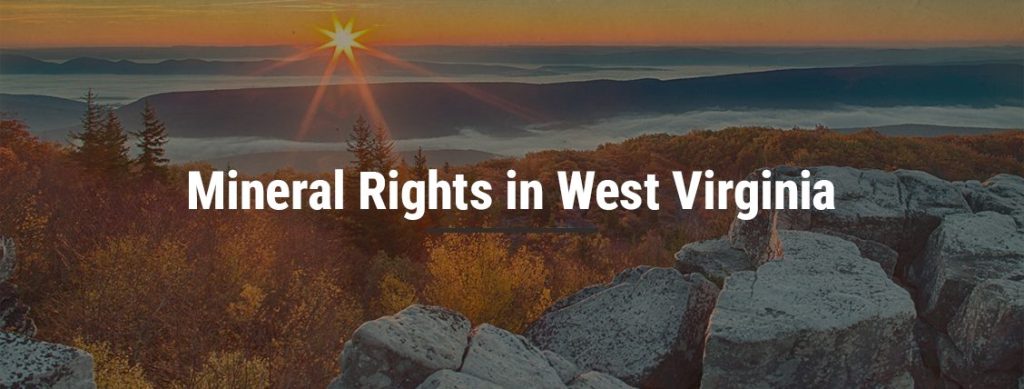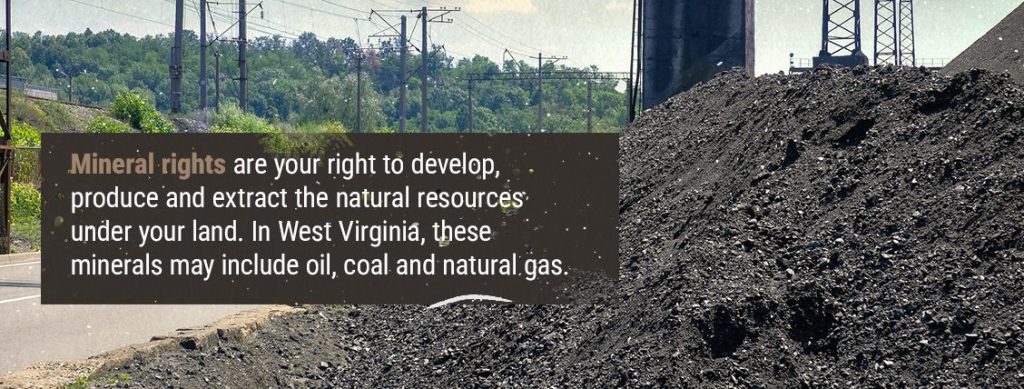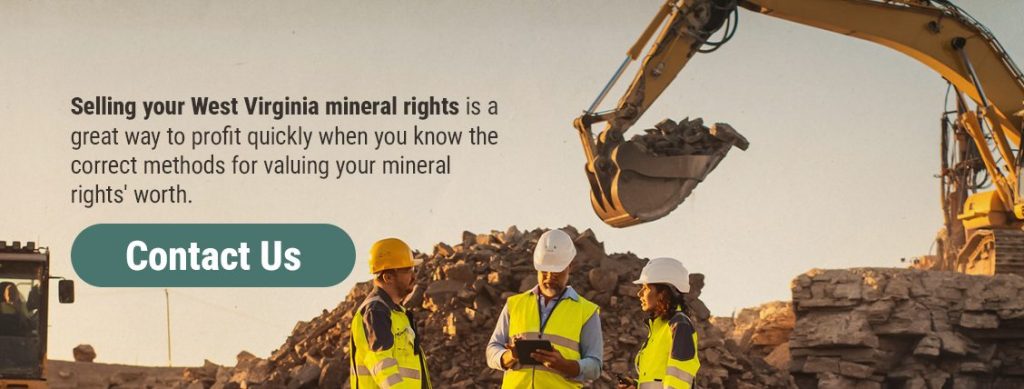
Table of Contents
- Understanding Mineral Rights in West Virginia
- How Do I Know If I Own Mineral Rights?
- How Do Inherited Mineral Rights Work in West Virginia?
- How Much Are Mineral Rights Worth In West Virginia?
- Mineral Rights Transfer Process
- Sell Your Mineral Rights In West Virginia
Whether you bought or inherited mineral rights in West Virginia, these rights can be a source of extra money when you sell or transfer your mineral rights. How much can you sell them for, and how do you know you’re selling to the right mineral rights acquisition company?
If you’ve recently inherited land, you may be curious about what mineral rights are and how they work. This guide explores these factors, along with how to check if you have mineral rights, how much they are worth and how you can sell them for a profit.
Understanding Mineral Rights in West Virginia
Mineral rights are your right to develop, produce and extract the natural resources under your land. In West Virginia, these minerals may include oil, coal and natural gas. While mineral rights may include everything under the ground, they may exclude sand, groundwater and limestone.

If you’re a landowner with mineral rights, you may be able to sell or lease these rights to a private company that values these minerals. When you lease your mineral rights, the company may drill and collect minerals from under your land and pay you monthly royalty payments. If you choose to sell your mineral rights, you could receive a large lump sum right away.
When dealing with land rights, there are two types you might have:
- Mineral rights: These rights give you the right to explore, develop and produce minerals underneath the surface of your land.
- Surface rights: Surface rights allow you to dig to a certain depth and make any improvements you please with everything on the surface of your land.
How Do You Know If You Own Mineral Rights?
It’s important to remember that surface rights and mineral rights are two separate things. This means if you have surface rights but not mineral rights, you are exempt from the right to extract minerals from under your land. You can take steps to discover and establish whether you own mineral rights. Working with a mineral attorney may help you navigate these methods more smoothly.
- Check lease documents: If your family or you have signed a lease with a tenant, check your lease documents to see whether they include any information about the mineral rights you own. This document might note your net mineral acres and information about the lessee.
- Research county records: While you may easily establish whether you have surface ownership on a county GIS website, you’ll need the help of a land services company to search county records regarding mineral rights.
- Review tax records: Search for the tax records on the minerals under your land. If someone else is being taxed on these minerals, one of the property’s previous owners may possess the mineral rights.
- File curative documents: If you find ambiguities in the chain of title, you may be able to ask your attorney to file the relevant curative documents so that you may have a “marketable” title to the rights.
How Do Inherited Mineral Rights Work in West Virginia?
In some cases, you may have inherited mineral rights from the previous owner involving life estates. This can happen during the probate period after the owner has passed on. The executor of the deceased’s estate will transfer the mineral rights to you according to that person’s wishes or the court’s decision. This legal process involves an attorney and insurance company looking into the deceased person’s title to ensure they rightfully had legal rights to the land’s minerals. Inherited minerals can carry unique tax considerations; learn more in our Mineral Rights Tax Guide.
If they find it is not on a lease and all checks come back clear, they may transfer the rights to your name. This involves creating a new state or county record in your name in a legal form.
How Much Are Mineral Rights Worth in West Virginia?
The value of your mineral rights in West Virginia depends on various factors:
- Producing minerals: According to West Virginia’s Tax Division, you can determine the value of the oil and gas royalty interest based on (i) the trajectory of producing well(s) (horizontal or vertical), (ii) the geographic location of the existing well(s), (iii) the age of the well(s), and (iv) the formation the well(s) produce from. An engineer most accurately performs this complicated valuation using production forecasting software.
- Current and future prices: Current and predicted future gas prices will significantly impact the value of your minerals.
- Competing operators: If you are interested in leasing overselling, the existence of competing operators in the area often translates to higher lease rates and better terms.
- Current leasing: If your mineral rights are currently receiving lease offers from reputable operators, this can increase their value as lease activity demonstrates an intent to develop.
- Current lease royalty: Minerals leased at 20% are worth more than minerals leased at 12.5% – it’s simple math! Your share of any gas pulled out of the ground is greater with a larger royalty.
- Current lease terms: Whether or not your lease allows the operator to deduct post-production costs has a material impact on the value of your minerals. Depending on the geographic location of your minerals, post-production costs may reduce your revenues by up to -50%. For this reason, “cost-bearing” minerals are worth less than “cost-free” minerals.
Selling Mineral Rights in West Virginia
Selling your West Virginia mineral rights involves carefully considering the company you plan to sell to. You’ll want to ensure you sell your mineral rights to a reputable company specializing in mineral rights acquisition. When coming across potential candidates, research them to see if they’ve bought within your state before and whether they have satisfied landowners.
Check that they are familiar with West Virginia laws and timelines to avoid increased costs and a longer sales process. You can ensure they offer a fair deal by getting a thorough valuation of your property done beforehand to receive a certification for sale.
Mineral Rights Transfer Process
The legal process of transferring your mineral rights in West Virginia consists of just a few simple steps. If you’re looking to transfer your mineral rights to an acquisition company, you may do the following:
- Present your mineral ownership: If you are approaching a mineral buyer to receive an offer, provide evidence of what you own and where. A copy of a previous deed, lease, lease offer, or monthly check detail will usually suffice.
- Receive an offer: The company will provide an offer to purchase your minerals based on the information provided them with, and should be based on (i) any current production and royalties, (ii) any potential future development, and (iii) predicted gas prices.
- Due diligence: Once you’ve accepted the offer, the company will begin a due diligence period. During this period, it will chain the title from the late 1800s or early 1900s today, confirming your mineral ownership in the lands and in the quantity represented.
- Closing: Upon completion of due diligence, the company will provide you with a mineral deed for execution and should simultaneously send you a check or wire for the final purchase price based on the ownership confirmed during due diligence.
Sell Your Mineral Rights With Cloud Peak Minerals
Selling your West Virginia mineral rights is a great way to unlock immediate liquidity, diversify your investments, and simplify your estate. If you’re ready to sell your mineral rights, the professionals at Cloud Peak Minerals will be more than happy to assist. Regulations and valuations vary by state; explore our state guides: Pennsylvania, Ohio, and Wyoming.
Our technical experts in West Virginia will thoroughly assess your property during valuation to ensure we offer you an accurate purchase price. To get started on selling your mineral rights, contact us for a free valuation today!

